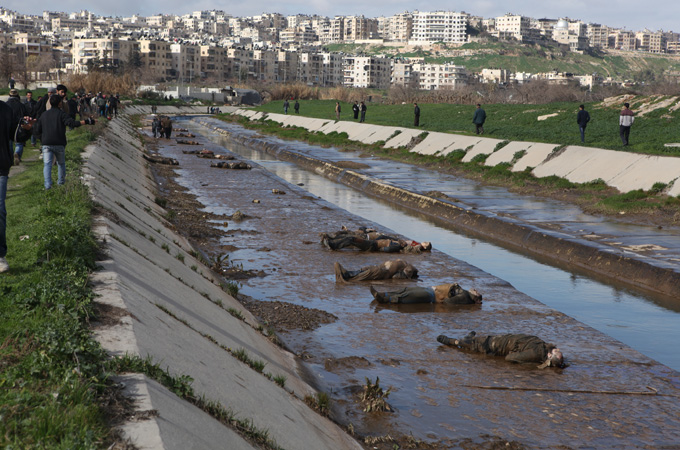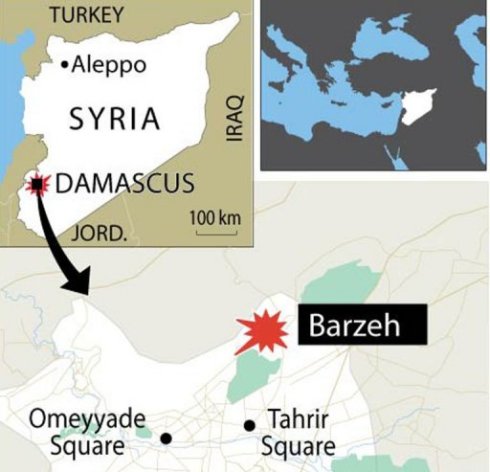People of Timbuktu Save Manuscripts from Invaders
By Rukmini Callimachi
Associated Press dispatch, February 4, 2013
"For eight days after the Islamists set fire to one of the world's most precious collections of ancient manuscripts, the alarm inside the building blared. It was an eerie, repetitive beeping, a cry from the innards of the injured library that echoed around the world. The al-Qaida-linked extremists who ransacked the institute wanted to deal a final blow to Mali, whose northern half they had held for 10 months before retreating in the face of a French-led military advance. They also wanted to deal a blow to the world, especially France, whose capital houses the headquarters of UNESCO, the organization which recognized and elevated Timbuktu's monuments to its list of World Heritage sites. So as they left, they torched the Ahmed Baba Institute of Higher Learning and Islamic Research, aiming to destroy a heritage of 30,000 manuscripts that date back to the 13th century.'These manuscripts are our identity,' said Abdoulaye Cisse, the library's acting director. 'It's through these manuscripts that we have been able to reconstruct our own history, the history of Africa. People think that our history is only oral, not written. What proves that we had a written history are these documents.' The first people who spotted the column of black smoke on Jan. 23 were the residents whose homes surround the library, and they ran to tell the center's employees. The bookbinders, manuscript restorers and security guards who work for the institute broke down and cried. Just about the only person who didn't was Cisse, the acting director, who for months had harbored a secret. Starting last year, he and a handful of associates had conspired to save the documents so crucial to this 1,000-year-old town. In April, when the rebels preaching a radical version of Islam first rolled into this city swirling with sand, the institute was in the process of moving its collection into a new, state-of-the-art building. The fighters commandeered the new center, turning it into a dormitory for one of their units of foreign fighters, Cisse said. They didn't realize only about 2,000 manuscripts had been moved there, the bulk of the collection remaining at the old library, he said.
By Rukmini Callimachi
Associated Press dispatch, February 4, 2013
"For eight days after the Islamists set fire to one of the world's most precious collections of ancient manuscripts, the alarm inside the building blared. It was an eerie, repetitive beeping, a cry from the innards of the injured library that echoed around the world. The al-Qaida-linked extremists who ransacked the institute wanted to deal a final blow to Mali, whose northern half they had held for 10 months before retreating in the face of a French-led military advance. They also wanted to deal a blow to the world, especially France, whose capital houses the headquarters of UNESCO, the organization which recognized and elevated Timbuktu's monuments to its list of World Heritage sites. So as they left, they torched the Ahmed Baba Institute of Higher Learning and Islamic Research, aiming to destroy a heritage of 30,000 manuscripts that date back to the 13th century.'These manuscripts are our identity,' said Abdoulaye Cisse, the library's acting director. 'It's through these manuscripts that we have been able to reconstruct our own history, the history of Africa. People think that our history is only oral, not written. What proves that we had a written history are these documents.' The first people who spotted the column of black smoke on Jan. 23 were the residents whose homes surround the library, and they ran to tell the center's employees. The bookbinders, manuscript restorers and security guards who work for the institute broke down and cried. Just about the only person who didn't was Cisse, the acting director, who for months had harbored a secret. Starting last year, he and a handful of associates had conspired to save the documents so crucial to this 1,000-year-old town. In April, when the rebels preaching a radical version of Islam first rolled into this city swirling with sand, the institute was in the process of moving its collection into a new, state-of-the-art building. The fighters commandeered the new center, turning it into a dormitory for one of their units of foreign fighters, Cisse said. They didn't realize only about 2,000 manuscripts had been moved there, the bulk of the collection remaining at the old library, he said.





